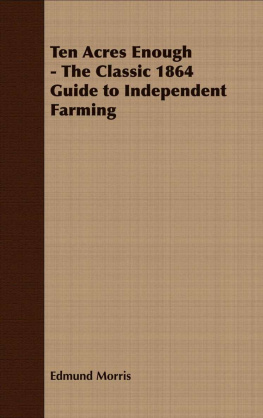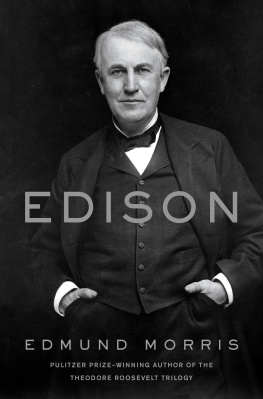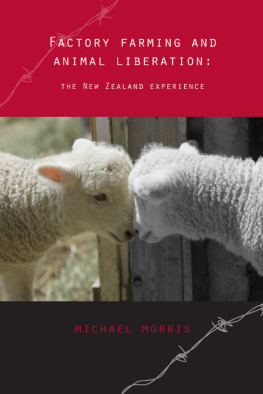Edmund Morris - Ten Acres Enough: The Classic 1864 Guide to Independent Farming
Here you can read online Edmund Morris - Ten Acres Enough: The Classic 1864 Guide to Independent Farming full text of the book (entire story) in english for free. Download pdf and epub, get meaning, cover and reviews about this ebook. year: 2004, publisher: Dover Publications, genre: Detective and thriller. Description of the work, (preface) as well as reviews are available. Best literature library LitArk.com created for fans of good reading and offers a wide selection of genres:
Romance novel
Science fiction
Adventure
Detective
Science
History
Home and family
Prose
Art
Politics
Computer
Non-fiction
Religion
Business
Children
Humor
Choose a favorite category and find really read worthwhile books. Enjoy immersion in the world of imagination, feel the emotions of the characters or learn something new for yourself, make an fascinating discovery.
- Book:Ten Acres Enough: The Classic 1864 Guide to Independent Farming
- Author:
- Publisher:Dover Publications
- Genre:
- Year:2004
- Rating:5 / 5
- Favourites:Add to favourites
- Your mark:
- 100
- 1
- 2
- 3
- 4
- 5
Ten Acres Enough: The Classic 1864 Guide to Independent Farming: summary, description and annotation
We offer to read an annotation, description, summary or preface (depends on what the author of the book "Ten Acres Enough: The Classic 1864 Guide to Independent Farming" wrote himself). If you haven't found the necessary information about the book — write in the comments, we will try to find it.
Ten Acres Enough: The Classic 1864 Guide to Independent Farming — read online for free the complete book (whole text) full work
Below is the text of the book, divided by pages. System saving the place of the last page read, allows you to conveniently read the book "Ten Acres Enough: The Classic 1864 Guide to Independent Farming" online for free, without having to search again every time where you left off. Put a bookmark, and you can go to the page where you finished reading at any time.
Font size:
Interval:
Bookmark:

Independent Farming
Edmund Morris

THE man who feeds his cattle on a thousand hills may possibly see the title of this little volume paraded through the newspapers; but the chances are that he will never think it worth while to look into the volume itself. The owner of a hundred acres will scarcely step out of his way to purchase or to borrow it, while the lord of every smaller farm will be sure it is not intended for him. Few persons belonging to these several classes have been educated to believe Ten Acres Enough. Born to greater ambition, they have aimed higher and grasped at more, sometimes wisely, sometimes not. Many of these are now owning or cultivating more land than their heads or purses enable them to manage properly. Had their ambition been moderate, and their ideas more practical, their labor would be better rewarded, and this book, without doubt, would have found more readers.
The mistaken ambition for owning twice as much land as one can thoroughly manure or profitably cultivate, is the great agricultural sin of this country. Those who commit it, by beginning wrong, too frequently continue wrong. Owning many acres is the sole idea. High cultivation of a small tract, is one of which they have little knowledge. Too many in these several classes think they know enough. They measure a mans knowledge by the number of his acres. Hence, in their eyes the owner of a plot so humble as mine must know so little as to be unable to teach them any thing new.
Happily, it is not for these that I write, and hence it would be unreasonable to expect them to become readers. I write more particularly for those who have not been brought up as farmersfor that numerous body of patient toilers in city, town, and village, who, like myself, have struggled on from year to year, anxious to break away from the bondage of the desk, the counter, or the workshop, to realize in the country even a moderate income, so that it be a sure one. Many such are constantly looking round in this direction for something which, with less mental toil and anxiety, will provide a maintenance for a growing family, and afford a refuge for advancing agesome safe and quiet harbor, sheltered from the constantly recurring monetary and political convulsions which in this country so suddenly reduce men to poverty. But these inquirers find no experienced pioneers to lead the way, and they turn back upon themselves, too fearful to go forward alone. Books of personal experience like this are rare. This is written for the information of the class referred to, for men not only willing, but anxious to learn. Once in the same predicament myself, I know their longings, their deficiencies, and the steps they ought to take. Hence, in seeking to make myself fully understood, some may think that I have been unnecessarily minute. But in setlting forth my own crudities, I do but save others from repeating them. Yet with all this amplification, my little contribution will occasion no crowding even upon a book-shelf which may be already filled.
I am too new a farmer to be the originator of all the ideas which are here set forth. Some, which seemed to be appropriate to the topic in hand, have been incorporated with the argument as it progressed; while in some instances, even the language of writers, whose names were unknown to me, has also been adopted.
MY life, up to the age of forty, had been spent in my native city of Philadelphia. Like thousands of others before me, I began the world without a dollar, and with a very few friends in a condition to assist me. Having saved a few hundred dollars by dint of close application to business, and avoiding taverns, oyster-houses, theatres, and fashionable tailors, I married and went into business the same year. These two contemporaneous drafts upon my little capital proving heavier than I expected, they soon used it up, leaving me thereafter greatly straitened for means. It is true my business kept me, but as it was constantly expanding, and was of such a nature that a large proportion of my annual gain was necessarily invested in tools, fixture, and machinery, I was nearly always short of ready cash to carry on my operations with comfort. At certain times, also, it ceased to be profitable. The crisis of 1837 nearly ruined me, and I was kept struggling along during the five succeeding years of hard times, until the revival of 1842 came round. Previous to this crisis, necessity had driven me to the banks for discounts, one of the sore evils of doing business upon insufficient capital. As is always the case with these institutions, they compelled me to return the borrowed money at the very time it was least convenient for me to do sothey needed it as urgently as myself. But to refund them I was compelled to borrow elsewhere, and that too at excessive rates of interest, thus increasing the burden while laboring to shake it off.
Thousands have gone through the same unhappy experience, and been crushed by the load. Such can anticipate my trials and privations. Yet I was not insolvent. My property had cost me far more than I owed, yet if offered for sale at a time when the whole community seemed to want money only, no one could have been found to give cost. I could not use it as the basis of a loan, neither could I part with it without abandoning my business. Hence I struggled on through that exhausting crisis, haunted by perpetual fears of being dishonored at bank,lying down at night, not to peaceful slumber, but to dream of fresh expedients to preserve my credit for to-morrow. I have sometimes thought that the pecuniary cares of that struggle were severe enough to have shortened my life, had they been much longer protracted.
Besides the mental anxieties they occasioned, they compelled a pinching economy in my family. But in this latter effort I discovered my wife to be a jewel of priceless value, coming up heroically to the task, and relieving me of a world of care. Without her aid, her skill, her management, her uncomplaining cheerfulness, her sympathy in struggles so inadequately rewarded as mine were, I should have sunk into utter bankruptcy. Her economy was not the mean, penny-wise, pound foolish policy which many mistake for true economy. It was the art of calculation joined to the habit of order, and the power of proportioning our wishes to the means of gratifying them. The little pilfering temper of a wife is despicable and odious to every man of sense; but there is a judicious, graceful economy, which has no connection with an avaricious temper, and which, as it depends upon the understanding, can be expected only from cultivated minds. Women who have been well educated, far from despising domestic duties, will hold them in high respect, because they will see that the whole happiness of life is made up of the happiness of each particular day and hour, and that much of the enjoyment of these must depend upon the punctual practice of virtues which are more valuable than splendid.
If I survived that crisis, it was owing to my wifes admirable management of my household expenses. She saw that our embarrassment was due to no imprudence or neglect of mine. She thus consented to severe privations, uttering no complaint, hinting no reproach, never disheartened, and so rarely out of humor that she never failed to welcome my return with a smile.
But in this country one convulsion follows another with disheartening frequency. I lived through that of 1837, paid my debts, and had managed to save some money. My wifes system of economy had been so long adhered to, that in the end it became to some extent habitual to her, and she still continued to practise great frugality. I became insensibly accustomed to it myself. Children were multiplying around us, and we thought the skies had brightened for all future time. When in difficulty, we had often debated the propriety of quitting the city and its terrible business trials, and settling on a few acres in the country, where we could raise our own food, and spend the remainder of our days in cultivating ground which would be sure to yield us at least a respectable subsistence. We had no longing for excessive wealth: a mere competency, though earned by daily toil, so that it was reasonably sure, and free from the drag of continued indebtedness to others, was all we coveted.
Font size:
Interval:
Bookmark:
Similar books «Ten Acres Enough: The Classic 1864 Guide to Independent Farming»
Look at similar books to Ten Acres Enough: The Classic 1864 Guide to Independent Farming. We have selected literature similar in name and meaning in the hope of providing readers with more options to find new, interesting, not yet read works.
Discussion, reviews of the book Ten Acres Enough: The Classic 1864 Guide to Independent Farming and just readers' own opinions. Leave your comments, write what you think about the work, its meaning or the main characters. Specify what exactly you liked and what you didn't like, and why you think so.










